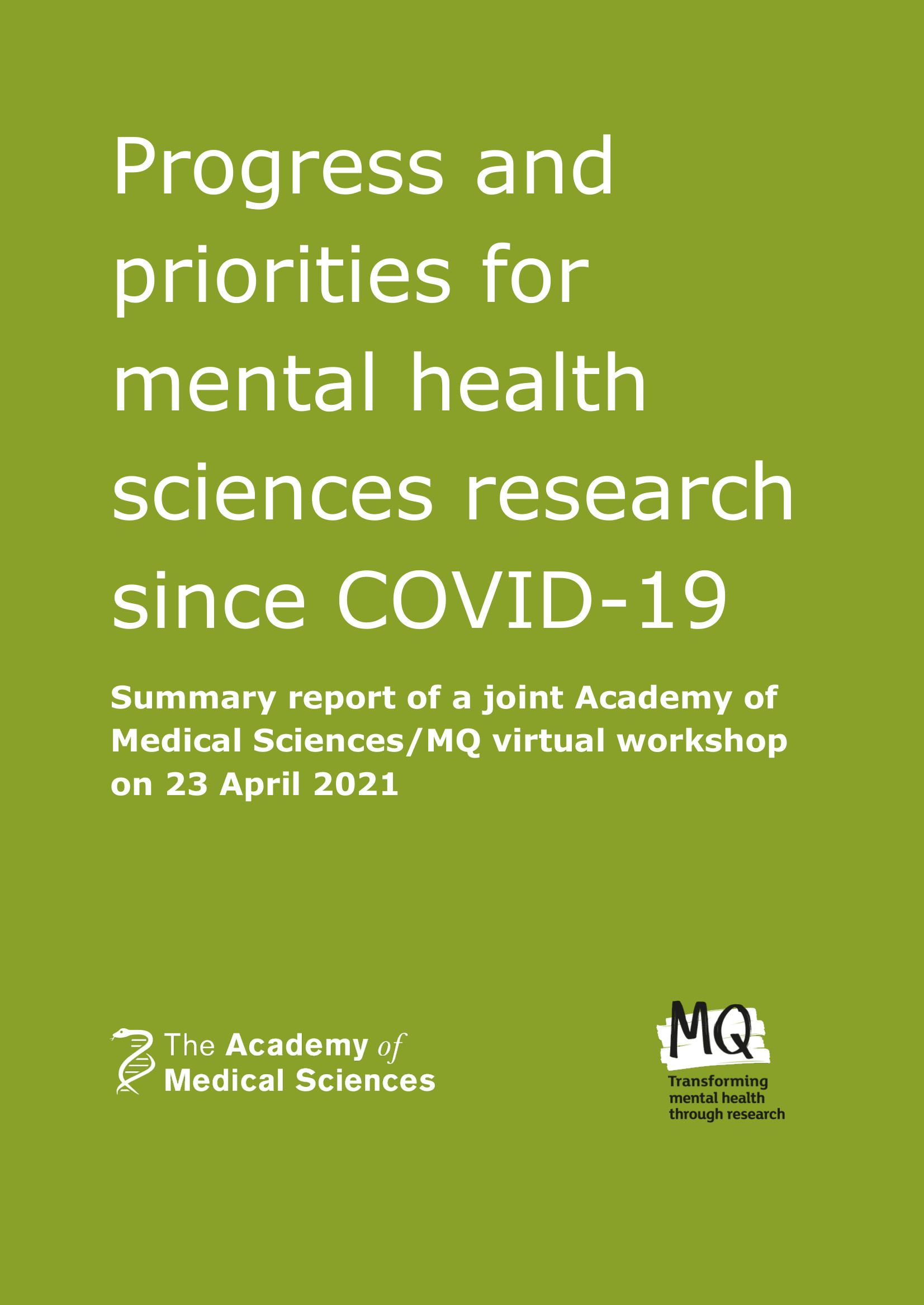COVID-19 has had a profound and lasting impact on mental health in the UK and around the world, according to a new report from the Academy of Medical Sciences and MQ: Mental Health Research.
Today's report is published ahead of World Mental Health Day 2021 and outlines key themes and discussion points from an April 2021 workshop on ‘Progress and priorities for mental health sciences research since COVID-19’.
The meeting was co-chaired by Professor Ed Bullmore FMedSci, Professor of Psychiatry and Deputy Head, School of Clinical Medicine, University of Cambridge, and Emily Holmes, Professor of Psychology at Uppsala University, Sweden. Input came from people with lived experience of mental health problems, as well as doctors, scientists, and representatives from funding bodies, the NHS and government.
The report details the direct and indirect effects of the pandemic – ranging from loneliness to post-traumatic stress disorder (PTSD) – and reveals how these vary between different groups of people, such as the elderly, ethnic minorities, and children and young people. It also explains how research can respond to this challenge, in particular by using data to better understand the issues, by addressing mental health alongside physical health, and by focusing on finding solutions, especially for the most vulnerable groups.
The report highlights a study showing that one in nine people in the UK experienced consistently bad or deteriorating mental health since the start of the pandemic. People who were most at risk were those on a low income, those from a black or minority ethnic groups, and those with pre-existing mental or physical health problems.
The direct impacts of COVID-19 infection include cognitive impairment, PTSD, anxiety and depression, as well as persistent tiredness and ‘brain fog’ brought about by long COVID. Indirect effects of the pandemic include social isolation, loss of income, extra caring responsibilities and fear of family members becoming infected.
The report emphasises research to help improve mental health following the pandemic must take a ‘holistic’ approach. This means researching the complex mixture of factors that can influence mental health – biological, psychological and social – as well as studying mental health in conjunction with physical health.
Mental health research has a strong track record of involving people with lived experience. Although this has been more challenging during the pandemic, the report notes that it is vital to ensure future research leads to solutions for the people who need mental health support.
Co-chair Professor Bullmore said:
“None of us has ever faced a challenge like COVID-19 before. Research is vital to help us understand the effects of the pandemic on mental health in the short- and long-term. Taking a holistic approach that considers the mind and body will give us the most complete understanding of these effects and help us find better ways to protect mental health and treat mental health difficulties in the future.”
Co-chair, Professor Holmes added:
“COVID-19 has exacerbated existing health inequalities with disadvantaged people suffering the most. We need to make sure the research we do benefits the people who need mental health support. The best way to do that is to include people who have lived experience in all stages of our work. Critically, to improve people lives, it is imperative we now do research which can help develop better interventions.”
Read more about the research priorities disucssed at the meeting in this MQ blog.
This workshop was part of a wider programme of activity from the Academy and MQ through the pandemic to explore the psychological, social and neuroscience impacts of COVID-19, and set out the immediate priorities and longer-term strategies for mental health science research.
The Academy’s recent report ‘COVID-19: Preparing for the future’ also examined the impact of COVID-19 on physical and mental health, looking ahead to help the UK prepare for additional pressures this winter and beyond.
